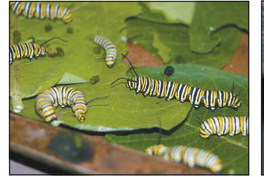Butterfly lady acts as mother to declining monarchs


By Ginna Young
Cornell is home to its very own monarch butterfly breeder, as Joann Jackson successfully raised 376 of the winged creatures this summer...


By Ginna Young
Cornell is home to its very own monarch butterfly breeder, as Joann Jackson successfully raised 376 of the winged creatures this summer...